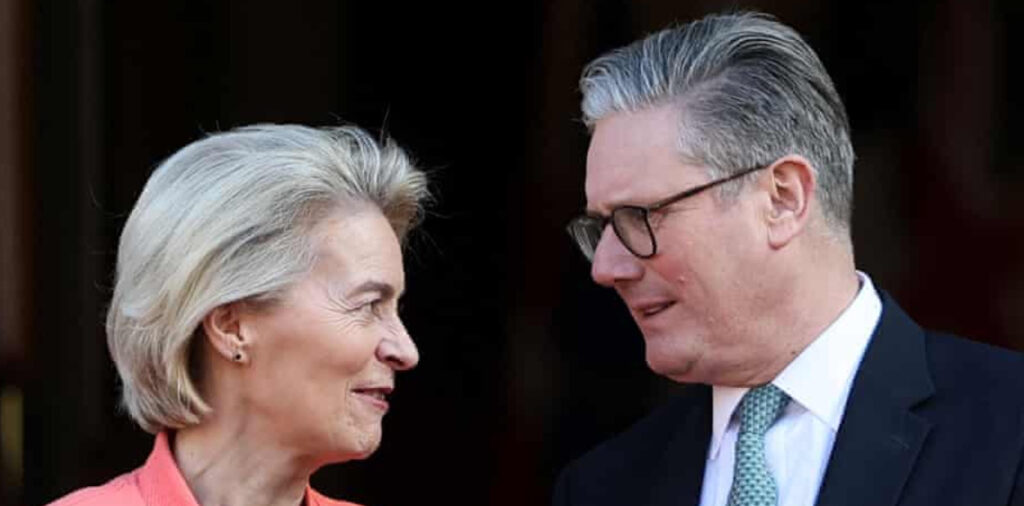The UK’s planned new agreement with the European Union will mark a definitive break from the “debates and arguments of the past,” according to UK chief negotiator Nick Thomas-Symonds. He affirmed that economic growth is the top priority in ongoing talks, which are building momentum ahead of the EU-UK summit set for 19 May.
As Prime Minister Keir Starmer prepares to meet European Commission President Ursula von der Leyen in London, the government is signalling a clear shift toward pragmatic partnership over ideological division.
A New Chapter in UK-EU Relations
Thomas-Symonds emphasised that the focus of negotiations will be delivering practical results in the national interest, saying: “This is not about ideology or returning to past divisions, but about ruthless pragmatism.”
The UK government is expected to pursue closer regulatory alignment with the EU on trade, reversing previous Brexit-era divergence. Thomas-Symonds argued that the new direction aims to deliver “long-term stability and security,” putting more money in the hands of working families.
Key Priorities: Mobility, Trade, and Climate
Sources indicate that the UK is poised to begin formal negotiations on three critical issues: a youth mobility scheme, a sanitary and phytosanitary (SPS) agreement to facilitate food and drink trade, and a carbon emissions deal. The SPS agreement is expected to draw from the 2023 EU-Switzerland model, with adjustments tailored to the UK.
Meanwhile, a defence cooperation pact is nearing completion, following the EU’s March white paper on defence, potentially enabling British firms like BAE Systems to access a share of the new €150 billion EU defence fund.
Migration and Intelligence Cooperation
The upcoming UK-EU partnership will likely include new arrangements for tackling irregular migration, including enhanced intelligence sharing and action against human trafficking. These measures are designed to reinforce border security and promote law enforcement collaboration.
Youth Mobility Scheme Gains Ground
Labour MPs and Chancellor Rachel Reeves have signalled openness to a youth visa agreement, with Brussels prioritising flexible, time-limited permits. While Reeves supports the scheme, Home Secretary Yvette Cooper insists on caps and one-year limits, reflecting cabinet-level divergence.
Looking to the Future
The Starmer–von der Leyen meeting on Thursday is expected to assess progress toward the May summit and ensure alignment on key goals: economic growth, improved living standards, and national security.
Despite progress, the UK government maintains its red lines—no return to the EU single market, customs union, or freedom of movement. “We will only agree to a deal that meets the needs of the British people and respects the 2016 referendum,” Thomas-Symonds said. “Britain is back on the world stage—and ready to lead.”


